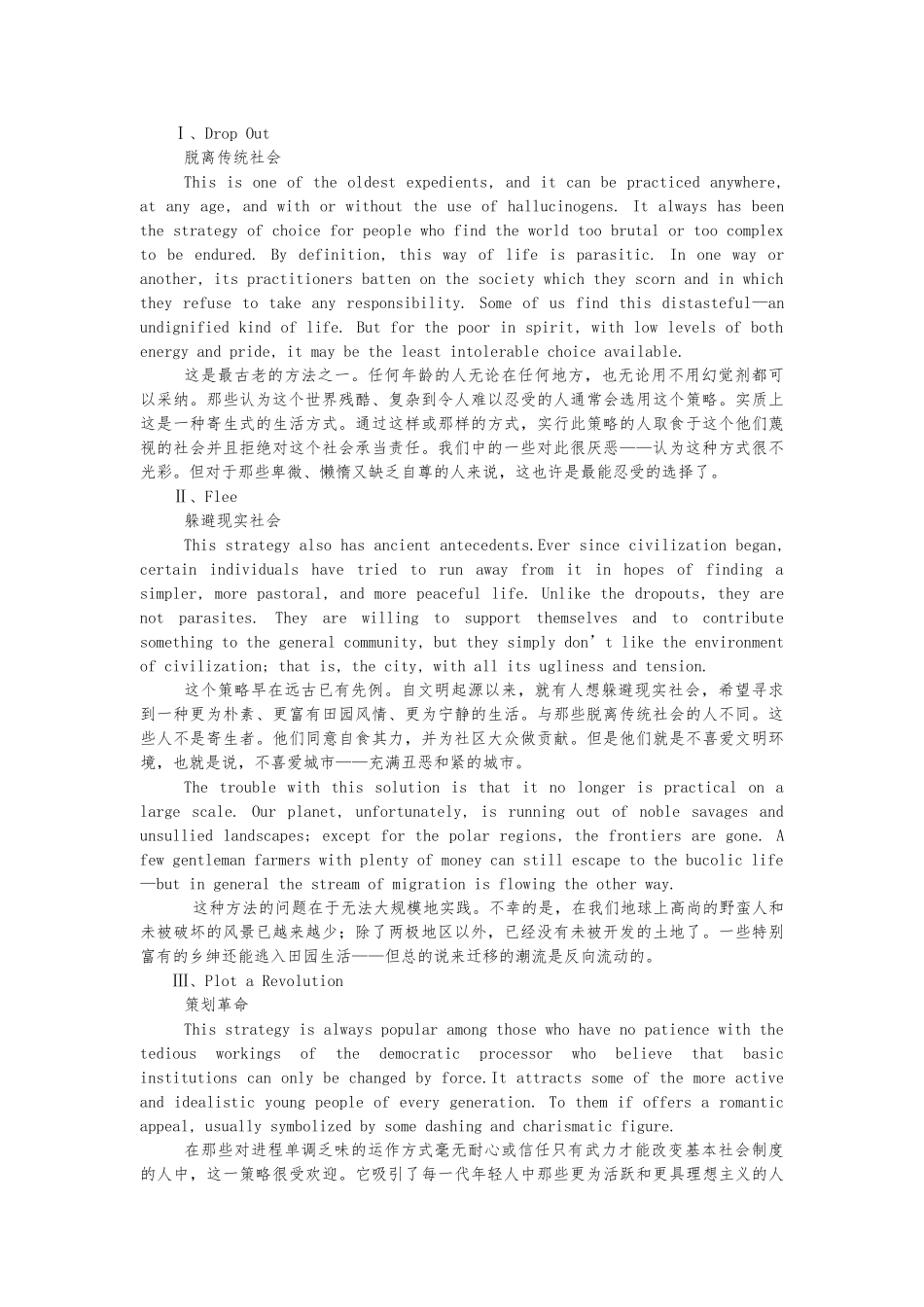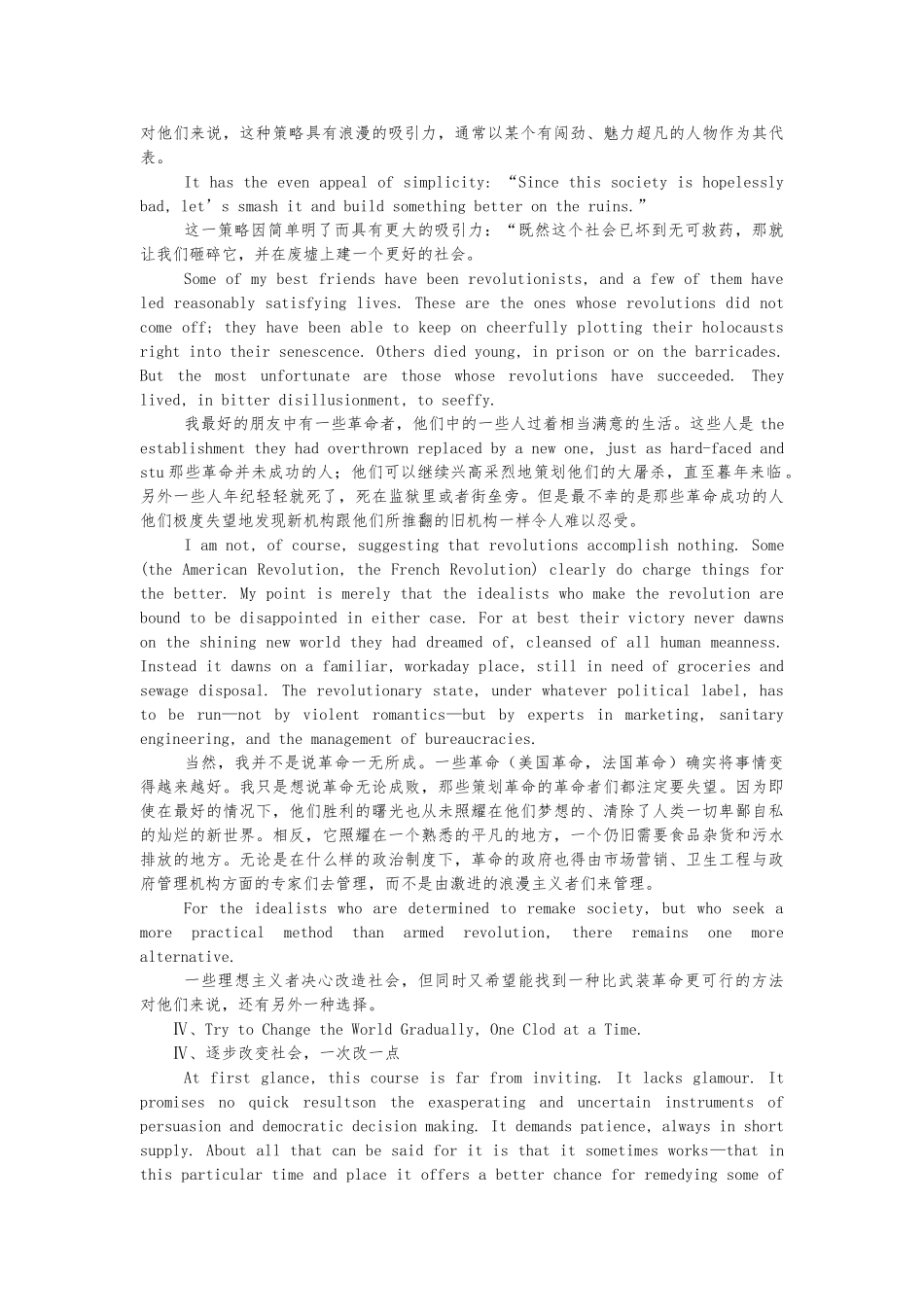Lesson TwoFour Choices for Young People年轻人的四种选择TextShortly before his graduation, Jim Binns, president of the senior class at Stanford University, wrote me about some of his misgivings. “More than any other generation,” he said, “our generation views the adult world with great skepticism… there is also an increased tendency to reject completely that world.”在毕业前不久,斯坦福大学毕业班班主席吉姆·滨丝给我写了一封信,谈到了他的一些不安。他在信中说:“与其他任何一代人相比,我们这一代人在看待成人世界时抱有更大的疑虑……同时越来越倾向于全盘否定成人世界。”Apparently he speaks for a lot of his contemporaries. During the last few years, I have listened to scores of young people, in college and out, who were just as nervous about the grown-up world. Roughly, their attitude might be summed up about like this: “The world is in pretty much of a mess, full of injustice, poverty, and war. The people responsible are, presumably, the adults who have been running things. If they can’t do better than that, what have they got to teach our generation? That kind of lesson we can do without.”显然他的话代表了许多同龄人的观点,在过去的几年中,我听到过大学外许多年轻人的谈话,他们对成人世界同样也感到不安。大致来说,他们的态度可以归纳如下:“这个世界处于混乱的状态,到处充满不平等、贫困和战争。对此该负责的大概应该是那些管理这个世界的成年人吧。假如他们仅能做到这些,他们又能拿什么来教育我们呢?这样的教导,我们根本不需要。”These conclusions strike me as reasonable, at least from their point of view. The relevant question for the arriving generation is not whether our society is imperfect (we can take that for granted), but how to deal with it. For all its harshness and irrationality, it is the only world we’ve got. Choosing a strategy to cope with it, then, is the firs...


